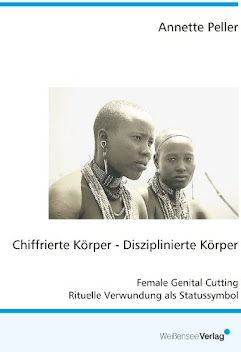Women Talking
Women Talking – the Situation
From time
to time I check out what other books someone has written, and when checking out
Miriam Toews, I discovered her new book Women Talking … and read it (and found
it most appropriate to comment this book as ‘amazing, sad, shocking’ – as done
by Margaret Atwood).
It tells
the story of girls and women in a remote Mennonite colony in Bolivia who would
wake up in the morning only to discover that are bruised and bleeding from her
lower abdomen. They felt dizzy and in pain. However, it was believed (and the
women were told so) that this was a result of being attacked by ghosts and
demons – probably as punishment for their sins and lustful wishes. Though, in reality,
they were made unconscious by eight men from their colony using belladonna
spray.
The men
were caught and sentenced. However, two years later, the rapes and sexual abuses
went on. According to the book’s back side, over three hundred girls and women
were raped and sexually assaulted during the years 2005 to 2009. And so it also
happened in the Molotschna Colony – as the
book would tell the story.
The rapist
had been caught and brought to the remote city for court hearing. The elders
and other men from the colony travelled to the city in order to sell some
livestock and bail them out – which meant that the rapist would return to the
colony in about 2 days.
This imminent
threat forced the affected women (one of them became pregnant by the rapist) to
make quick and far-reaching decisions:
- Do Nothing – and to forgive the rapists or come otherwise to terms with them and the other members of the colony. Suffering opens heaven’s gate.
- Stay and Fight – and probably hurt or even kill some (or all) of the rapist – but thereby forfeiting their own admission to heaven
- Leave – and adhere to one of their basic believes, i.e. non-violence, and come to terms later (and remotely).
The women from
the Loewen and Friesen families met in a hayloft and asked the (effeminate) teacher
(and former inmate) August Epp to join them, take minutes and read them to the
woman - since they were not taught (or
even entitled) to learn how to read and write.
And so the
discussion began. The women talked in Plautdietsch - a Low Prussian Dialect that was spoken by
the Mennonites settlers first in Russia and then, after the migration, in Latin
American countries, in Canada (Manitoba) and some parts of the United States.
Amazing
It is very
exciting to listen to the women talking –
how they discuss controversial topics and how they interpret their basic beliefs
(like, are women to be treated as ‘animals’ or do they have rights on their own).
The women are down to earth (one not so), but at the same time witty,
surprising, tender, rebellious (some), suffering, dreaming - but most of all very eager to protect their
children by all means.
Sad
Criminal
and non-criminal male aggression is always very reprehensible and utterly
disgusting. No excuses allowed. It makes me very sad the we men brought so much
harm and evil upon the fe-males.
Shocking
Knocking out their victims with belladonna spray in order to rape them is utterly evil. Disturbingly, the belladonna spray was kept in the barn of the colony leader (for use with livestock) but obviously not properly safe-guarded - and that someone should have noticed something over time …. but maybe their evil doings were considered the lesser evil and even forgivable - since as you can willfully treat animals so can do with … and … because calling the police would harm the reputation of their colony and therefore should be avoided by all means (but could – obviously – not be prevented). Furthermore, the elders and other men from the colony wanted to bail out the rapist – as if their lives were more important than those of their own wives, women and daughters.
Language
The women
talk in Plautdietsch but are translated and recorded by the school teacher August
Epp in English. However, Plautdietsch words are used throughout the book, like
- Dummheit: stupidity
- Dummkopf: idiot, moron
- Faspa: it’s usually the evening supper or a light in-between meal, in German: Vesper. When I was young, children at kindergarten or school were supposed to bring a vesper with them.
- Kjinja: little children; in Germany: kleine Kinder, Kinderchen
- Leibchen: means something like Mädchen (girl), Liebes (beloved)
- Maddachschlop: afternoon nap; Mittagsschlaf
- Narfa: nervous / nervousness; in German: fahrig, nervös, agitiert
- Opprua: uproar
- Schinda: someone who is unfit and only useful to tan the skin of cows
Note: the
narrator’s name is August Epp. Epp comes from ‘aspen’. But to me, two more connotations
come up: in Germany, a hilariously acting clown was called ‘Dummer August’
(Stupid August), and Epp is close to Depp (moron). Since August is described as
being ‘effeminate’ … the teacher is easily
(and continuously) discriminated.




Comments
Post a Comment